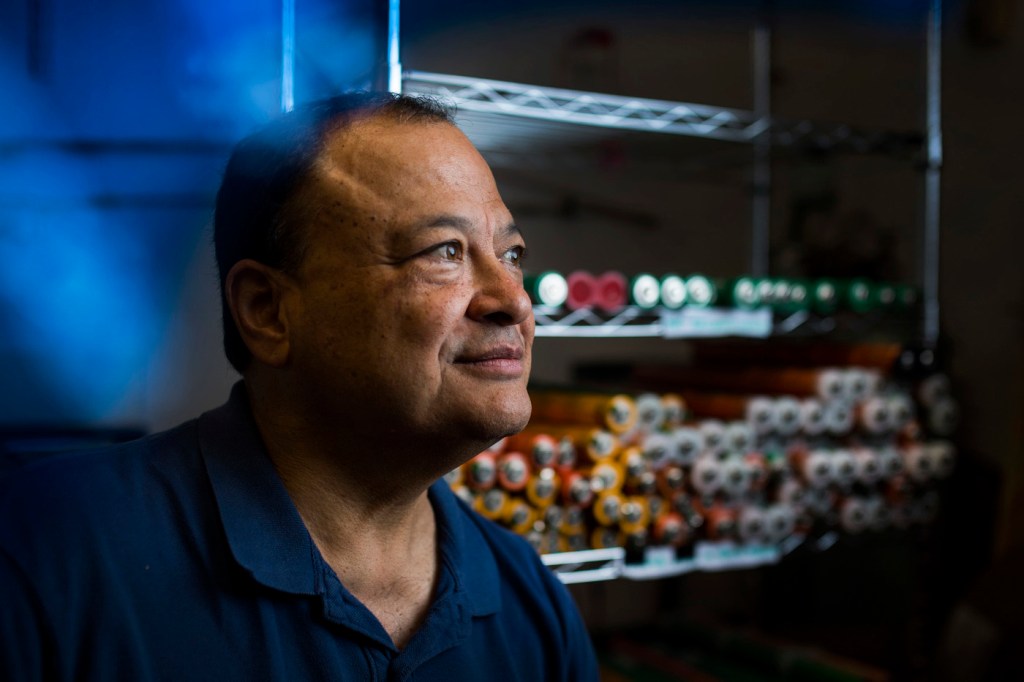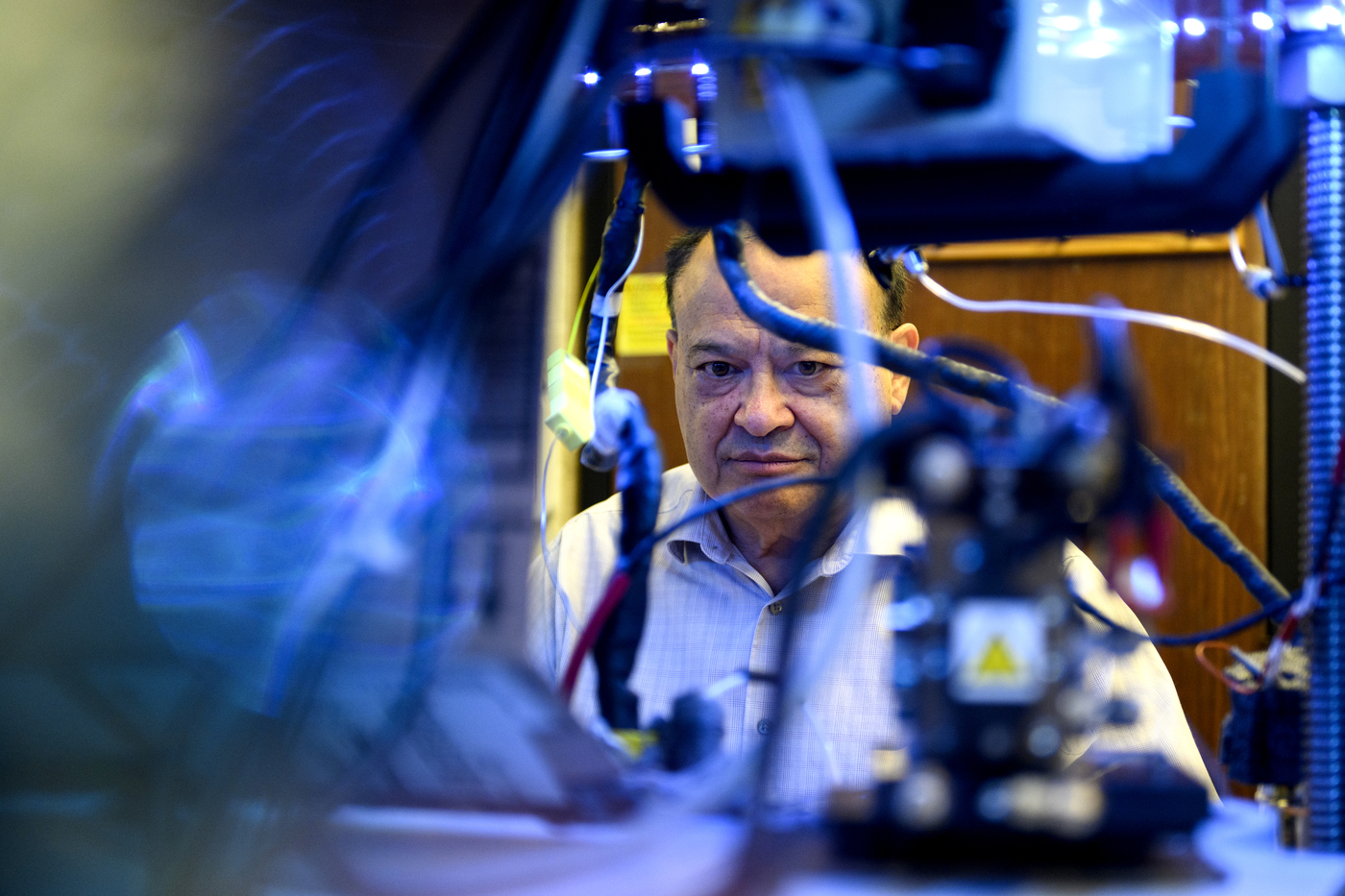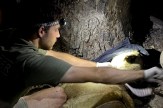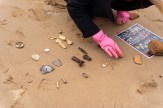Northeastern professor Eugene Smotkin named fellow by prestigious American Association for the Advancement of Science
Eugene Smotkin is a forerunner in the study of chemical catalysts in fuel cells and in the repurposing of vehicle batteries. Now he’s being honored as a fellow of the American Association for the Advancement of Science.

Professor of chemistry and chemical biology Eugene Smotkin has been named a fellow of the American Association for the Advancement of Science (AAAS).
A forerunner in the techniques of operando spectroscopy, Smotkin was the first to examine the behavior of chemical catalysts in fuel cells under normal operating conditions.
Using various spectroscopic techniques, Smotkin’s group put “windows” onto working devices to discover how catalysts in these fuels function. Eventually, this work led him to repurpose commercial automotive batteries, specifically the large traction batteries found in Toyota hybrids.
When one of these batteries starts to fail, there are both “irreversible capacity losses and reversible capacity losses,” Smotkin says. “My equipment actually recovered the reversible capacity lost, and it enabled us to put these reconditioned batteries back into the aftermarket.”

This means that these batteries, which before were likely going to landfills, could now be inexpensively repurposed, both for cars and for other purposes.
“It’s good for the environment,” Smotkin notes, but these refinements also “created jobs,” starting in Gary, Indiana, where Smotkin’s spinout company NuVant was founded. NuVant is now an A3 Global-owned company, and its equipment has spread to six continents.
Smotkin has been a member of AAAS for over two decades. As a fellow, he enters this preeminent society’s rosters in recognition of his “extraordinary achievements,” according to the AAAS’ webpage. The AAAS is “the world’s largest general scientific society” and serves more than 10 million individuals through their various organizations and publications.
As the publisher of Science magazine, one of the most prestigious academic and scientific journals in publication, AAAS is deeply involved in bringing science to the public, Smotkin says.
As a proud resident of Puerto Rico, Smotkin sees his work reconditioning batteries as one that benefits the entire island. “The poverty rate in Puerto Rico is 43%,” he says. “We need dirt cheap batteries for many geographic locations. And these hybrid vehicle batteries are a candidate.”
“We proved that this concept works,” he continues — proof that was documented in Powering Puerto Rico, an award-winning documentary by Northeastern Films that followed Smotkin in the wake of two tragedies: The days following Hurricane Maria and his wife’s stroke.
“It was sort of synergistic,” he says. “The film motivated us, and we motivated the film.”
Using reconfigured Toyota hybrid vehicle battery modules, Smotkin and his team assembled a low-cost solar energy storage system for a disadvantaged family in Utuado — one of the towns hit hardest by Hurricane Maria.
“We really changed the life of one family,” he says.
“This is the most important recognition I’ve ever had,” Smotkin says. “It puts all of my work in context. And moreover, it’s inspiring for my students and staff and me, because as a fellow, there are expectations” to do more.
“It’s the beginning now.”
Smotkin joins eight other AAAS fellows currently at Northeastern: Carla E. Brodley, Paul Champion, Kevin Fu, Yun Raymond Fu, Kim Lewis, Alexandros Makriyannis, Hazel Sive, Geoffrey Trussell and Alessandro Vespignani.






